Have you ever taken a moment to think about your overall health?
Obviously, yes but when we think about our health, the main focus on our skin, heart, and muscles, why we stop thinking about lungs while the lungs are the main organ of our body that keeping us alive.
Lungs provides oxygen to our bloodstream as well as expel carbon dioxide from our body. So, it’s important to care our lungs and try our best to keep them healthy.
If we don’t care, we face difficulties like breathing problems or coughs.
As a matter of fact, our lungs are continuously at work eliminating dangerous poisons and pollutants from the air we breathe, thus keeping them healthy is critical to our general health.
However, our eating habits plays critical role in our lungs health. High nutriention food reduce the inflammation and protect our lungs which improve the ability to breathe.
So, incorporating these foods into your diet not just keep your lungs healthy but makes your respiratory system effective.
Here, we discuss 14 foods that are beneficial for our lungs as well as describe the simple dietary changes which are helpful to keep us healthy.
Which Foods are Best for Lungs Strengthen
Foods such as, protein, healthy fats and complex carbohydrates, as well as fruits and vegetables, may strengthen your lungs.
Proteins
According to research, high-protein diets are linked to healthy lung function. Also, your breathing muscles remain healthy and strong with the support of protein.
Here are some protein-rich foods:

Healthy Fats
Your body creates the least amount of carbon dioxide for each oxygen molecule consumed during the fat metabolism process, which facilitates breathing.
That’s why consuming foods higher in fat could facilitate easier breathing.
Researchers discovered that improved lung function and a lower risk of lung function decline were linked to greater blood levels of omega-3 fatty acids.
Omega-3 foods are:
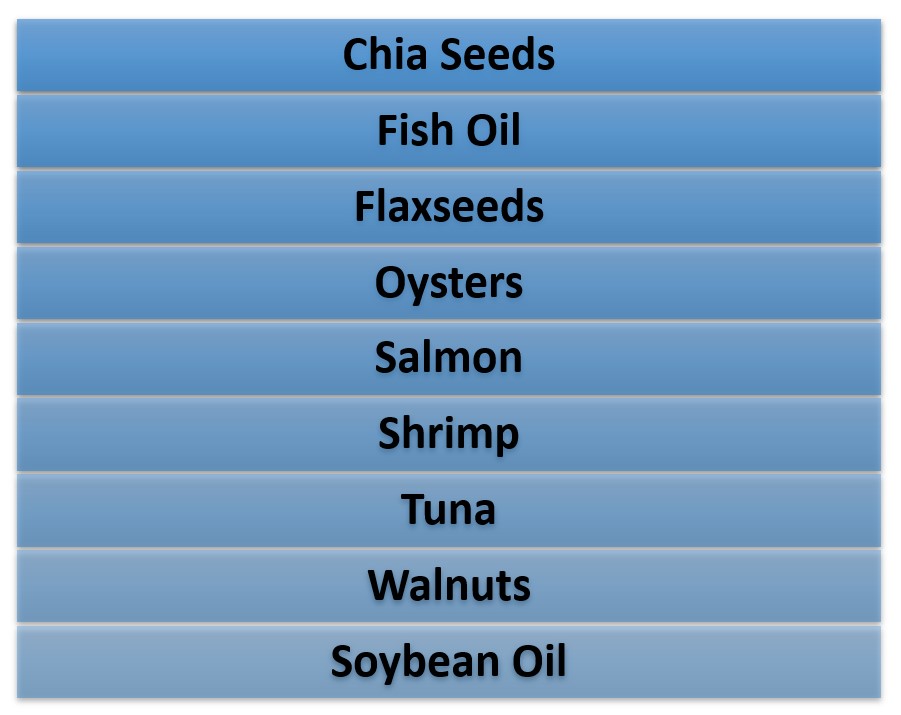
Other than that, cow’s milk, yogurt, and juice may also contain omega-3.
Potassium
Potassium offers some protection from lung cancer.
Moreover, those experiencing an acute exacerbation of COPD (worsening symptoms) frequently have hypokalemia, or low potassium levels.
Sodium and potassium problems in patients with COPD exacerbation presenting to the emergency department.
So, It is crucial to keep potassium levels at an appropriate level.
Potassium-rich foods are: 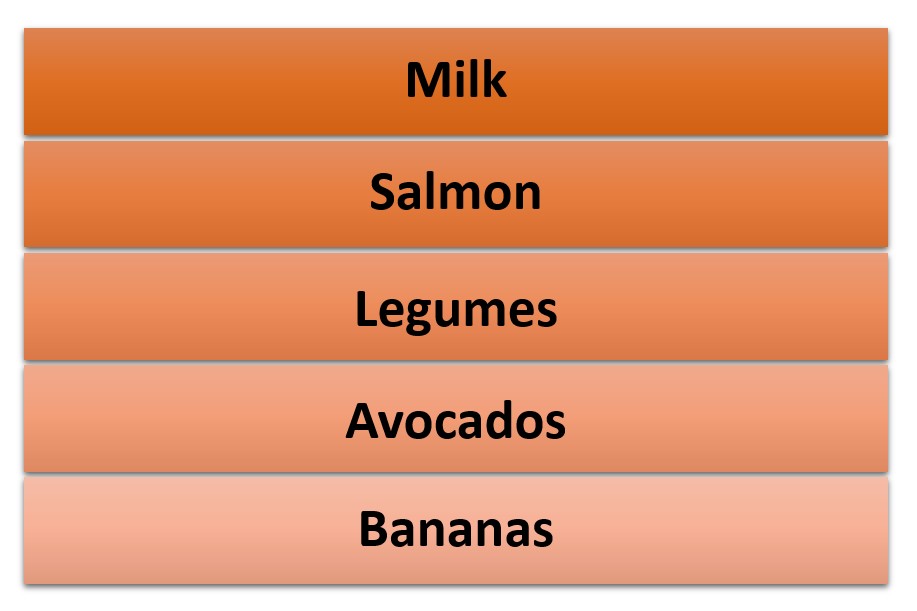
Complex Carbs
A low-carb diet lowers the chance of developing COPD in persons.
This is because, as opposed to fats, the body produces more carbon dioxide during the metabolism of carbohydrates, which impairs lung function.
That’s why choose complex carbohydrates over simple ones when picking your carbohydrates because they take longer to digest.
Some healthy options are:
- Pulses
- kidney beans
- garbanzo beans
- lentils
- starchy vegetables
Fresh Fruits and Vegetables
Vegetables and fruits are rich in vitamins that are beneficial to the lungs.
The following vitamins have been linked by researchers to lung health:
Vitamin A
Vitamin B
Vitamin C
Vitamin D
Vitamin E
Vitamin D may be particularly beneficial for lung health due to its anti-inflammatory and antioxidant properties.
Certain types of mushrooms are rich in this vitamin, although few fruits and vegetables do.
The 14 Best Foods for Healthy Lungs
It’s important to maintain the health of your lungs to feel your best.
However, a number of common conditions can cause harm to these two vital organs, such as consuming an inflammatory diet, being exposed to pollutants in the environment, and smoking.
Research shows that you can improve your lung health and minimize the chances of lung diseases by modifying your lifestyle and eating good foods.
Here are 14 foods that are best for your lung health
Beetroot
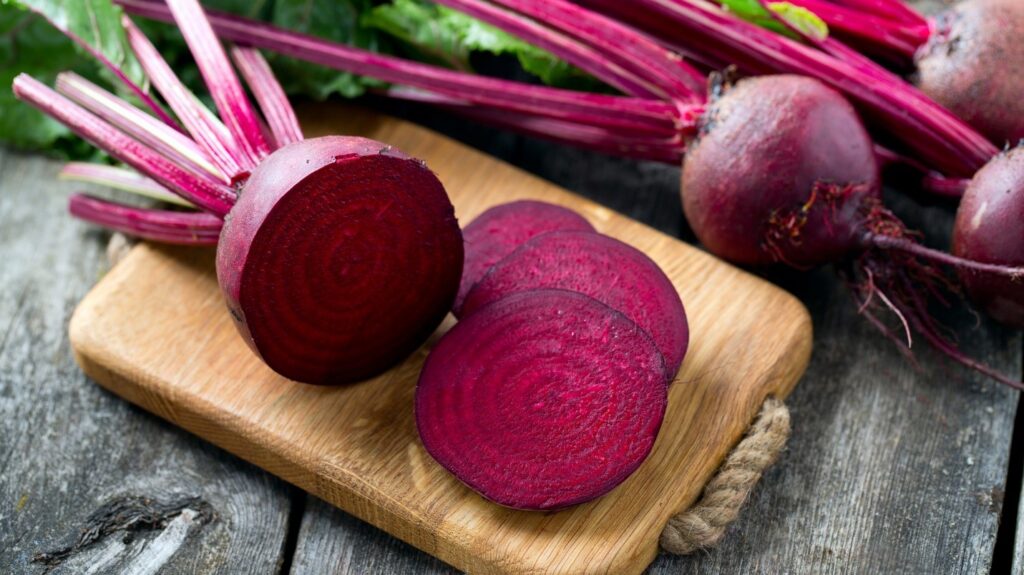
The beetroot plant’s brightly colored leaves and roots contain substances that improve lung function.
Beetroot Rich in nitrates, which improves the blood vessel relaxation, blood pressure reduction, and improved oxygen uptake.
Moreover, it has been demonstrated that beetroot supplements enhance lung function and physical performance in patients with lung diseases, such as COPD and pulmonary hypertension (a condition characterized by elevated blood pressure in the lungs).
Furthermore, the carotenoid antioxidants, magnesium, potassium, and vitamin C found in beet greens are all important for lung health.
Apples

A famous saying” An apple a day keeps the doctor away” this shows that apples are nutrient rich fruits which prevents you more diseases.
According to research Eating apples on a daily basis may assist support lung function.
For example, research indicates that eating apples helps ex-smokers’ lung function diminish more slowly.
Furthermore, a lower chance of getting COPD and improved lung function are linked to eating five or more apples a week.
So, consuming apples has also been associated with a decreased incidence of lung cancer and asthma. This could be because apples have a high concentration of antioxidants, such as vitamin C and flavonoids.
Pumpkin

Pumpkins’ are packed with plant chemicals that support lung function.
They are particularly high in carotenoids, which have potent anti-inflammatory and antioxidant qualities.
According to research, improved lung function is linked to increased blood levels of carotenoids in both younger and older people.
However, eating more foods high in carotenoids, such as pumpkin, may be very beneficial for smokers.
Research also indicates that smokers may have 25% lower levels of antioxidant carotenoid than non-smokers, which could be detrimental to lung health.
Tomatoes

Tomatoes and tomato-based products are some of the best dietary sources of lycopene, a carotenoid antioxidant linked to better lung function.
It has been demonstrated that eating tomato-based products helps persons with COPD breathe easier and reduces airway inflammation in asthmatics.
According to a 2019 study involving 105 asthmatics, a diet high in tomatoes was linked to a lower incidence of poorly managed asthma. Furthermore, eating tomatoes is linked to a delayed deterioration of pulmonary function among former smokers.
Green Tea
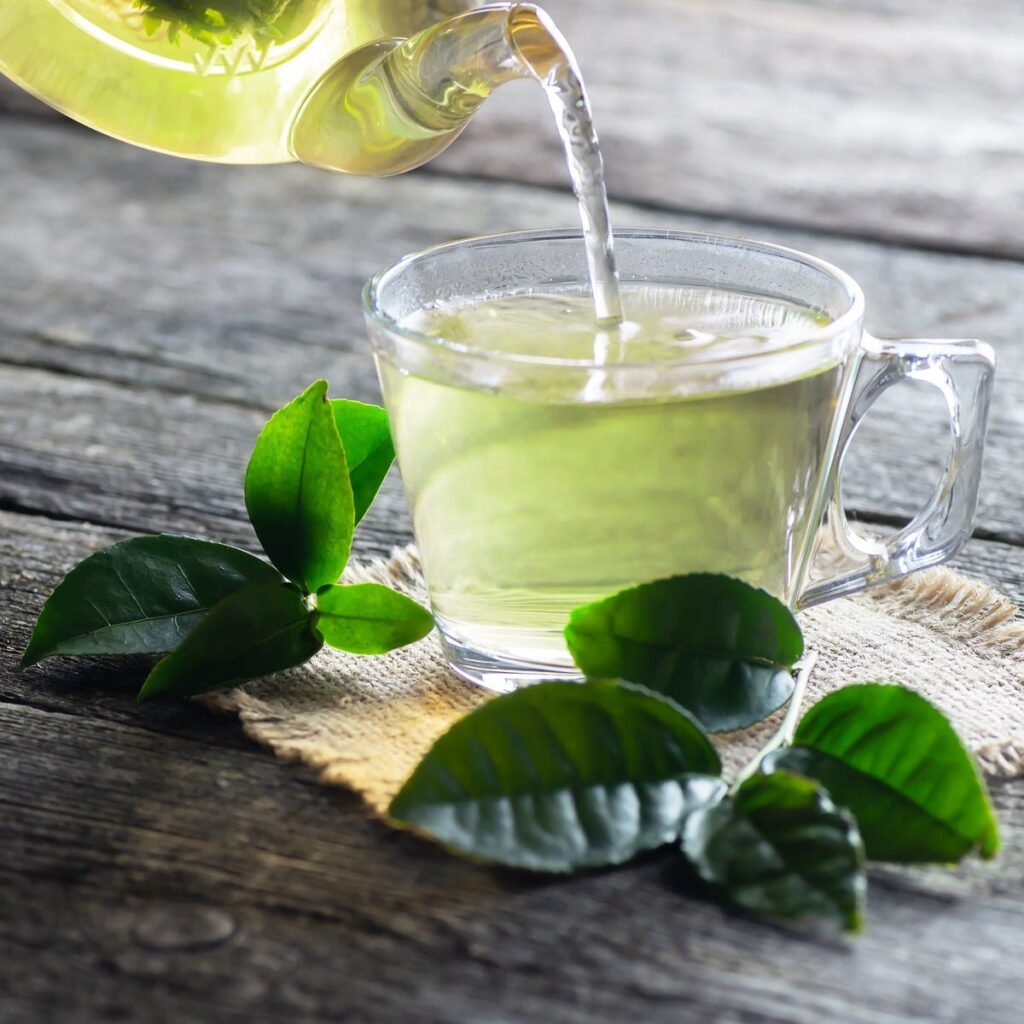
The health benefits of drinking green tea are remarkable. Green tea is high in a catechin called epigallocatechin gallate (EGCG).
A gradual scarring of lung tissue that impairs lung function is the hallmark of pulmonary fibrosis. EGCG may help in the treatment of this illness, according to some research.
Twenty patients with pulmonary fibrosis participated in a small 2020 study, and the results showed that two weeks of EGCG extract treatment decreased fibrosis indicators as compared to the control group.
Blueberries

Blueberries are rich in nutrients. However, eating blueberries has been linked to several health advantages, including maintaining and enhancing lung function.
Malvidin, cyanidin, peonidin, delphinidin, and petunidin are among the several anthocyanins found in abundance in blueberries.
The powerful pigments called anthocyanins includes in blueberries protect lung tissue from oxidative damage.
According to a study involving 839 experts, the consumption of blueberries was linked to the slowest rate of deterioration in lung function. Eating two or more servings of blueberries per week could slow the reduction in lung function by as much as 38% when compared to little or no intake of blueberries.
Red Cabbage
Red cabbage is an inexpensive and abundant source of anthocyanins. The vibrant color of red cabbage is due to these plant pigments.
Consuming anthocyanins has been associated with a slower rate of lung function deterioration.
Moreover, cabbage has a high fiber content. Research indicates that those with higher fiber intakes had superior lung function compared to those with lower fiber intakes.
Olive Oil

Olive oil has numerous health benefits since it is a concentrated source of antioxidants that reduce inflammation, such as vitamin E and polyphenols.
For example, a research with 871 participants discovered that individuals with a high consumption of olive oil had a lower chance of developing asthma.
Furthermore, it has been demonstrated that smokers, as well as those with COPD and asthma, benefit from a Mediterranean diet high in olive oil.
Oysters

Oysters are a great source of zinc, selenium, copper, B vitamins, and other elements that are helpful for lung health.
Research indicates that individuals with high blood selenium and copper levels exhibit improved lung function in comparison to those with reduced amounts of these elements.
Furthermore, oysters are a great source of zinc and B vitamins, which are particularly beneficial for smokers.
Certain B vitamins, such as vitamin B12, which is mostly found in oysters, are diminished by smoking. Furthermore, research indicates that consuming extra zinc may help shield smokers from COPD development.
Yogurt

Selenium, phosphorus, potassium, and calcium are abundant in yogurt. These nutrients may improve lung function and lower the incidence of COPD.
A study conducted on adult Japanese participants revealed that increased lung function markers were linked to higher intakes of calcium, phosphorus, potassium, and selenium. Moreover, individuals with the highest calcium intake had a 35% lower risk of developing COPD.
Brazil Nuts
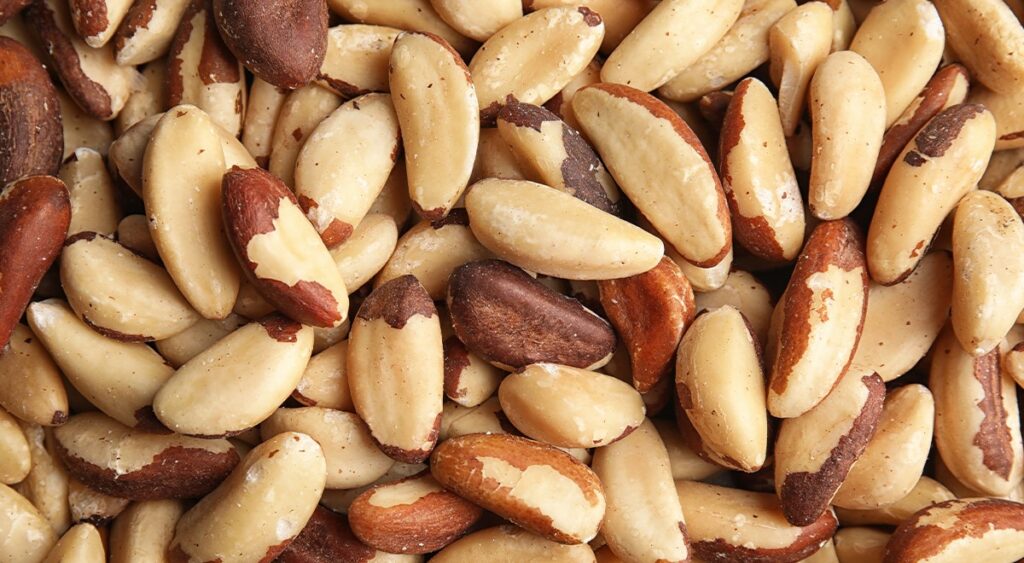
Among the foods that are highest in selenium are Brazil nuts. Over 150% of the daily required intake for this crucial vitamin can be found in a single Brazil nut, yet concentrations can vary greatly according on growing circumstances.
Research shows that a high consumption of selenium could potentially protect against lung cancer, ameliorate asthmatic respiratory symptoms, and bolster immune system and antioxidant defenses, all of which could contribute to improved lung health.
So, it is advised to limit your consumption of Brazil nuts to one or two nuts per day due to their concentrated selenium content.
Coffee

Your daily cup of coffee might do more for you than just increase your energy.
It might also protect your lungs.
According to research, coffee use may help prevent respiratory illnesses and enhance lung function. As an illustration, caffeine functions as a vasodilator, which helps to widen blood vessels, and it may, at least initially, lessen asthmatic symptoms.
Furthermore, a review of fifteen research revealed that a long-term coffee drinker had improved lung function and a lower chance of developing asthma.
Barley
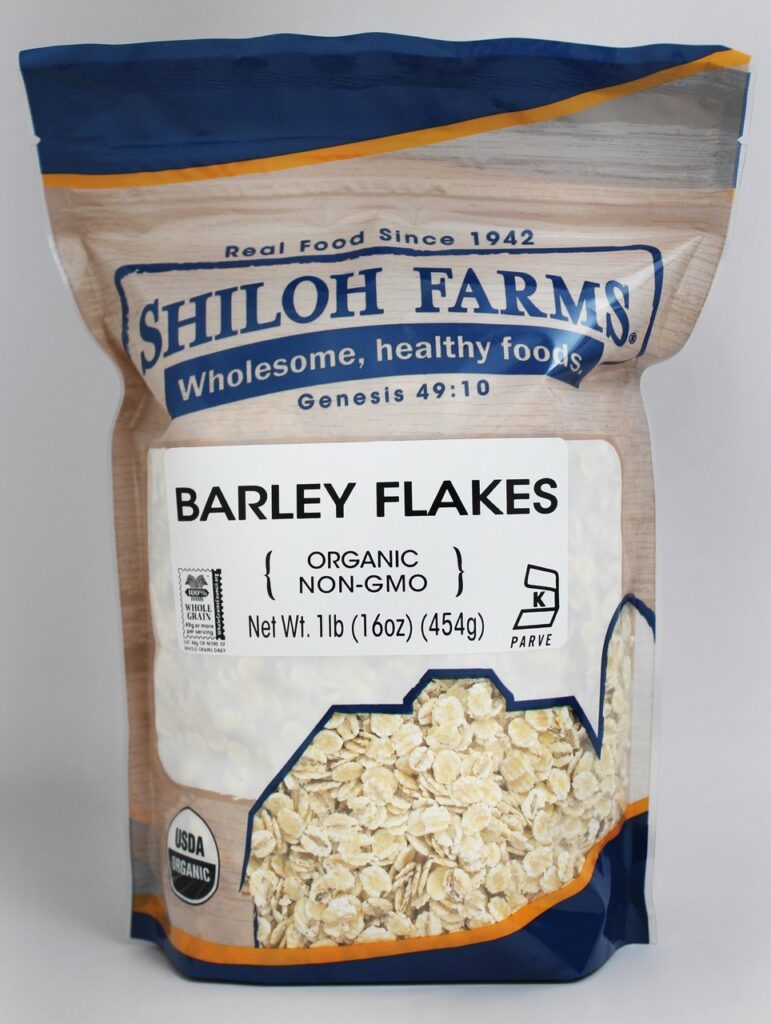
Barley is a whole grain that is rich in fiber and nutrients. Whole grain-rich, high-fiber diets have been demonstrated to protect lung function and may lower the death risk from lung-related illnesses.
Lentils
Lentils have high levels of minerals like magnesium, iron, copper, and potassium which enhance lung function.
Legumes such as lentils are heavily included in the Mediterranean diet, which has been linked to lung health promotion.
Studies have demonstrated that smokers’ lung function can be maintained by adhering to a Mediterranean diet pattern. Lentils are high in fiber, which prevents COPD and lung cancer.
Top 8 Herbs for Lungs
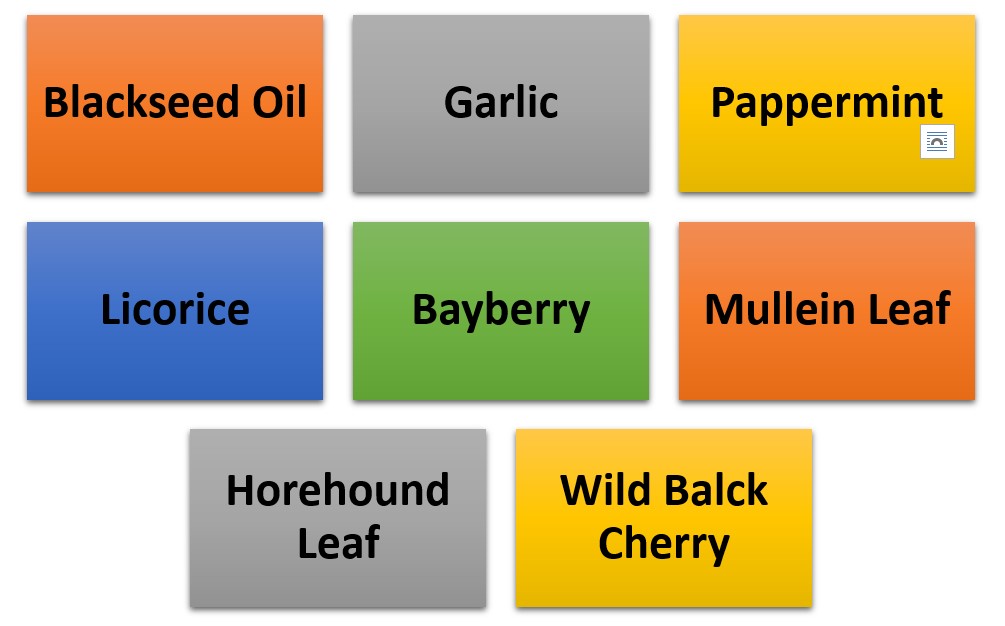
Foods to Avoid
To keep your lungs healthy, avoid these foods
- Milk Chocolate
- White Bread
- Potato Chips
- Beer
Conclusion
Your lungs work hard for you every day that’s why it’s important to keep them healthy. Making small changes to your diet improves your overall health. So, the above-mentioned foods must include into your diet to prevent any lung disease.
As well as avoid those foods which are less nutritious and promote inflammation.





